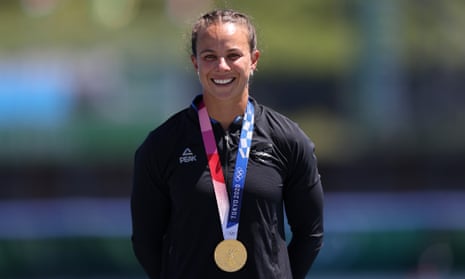For eight months of this year, New Zealanders were so rude – or lucky, depending on whether you live inside or outside New Zealand – as to ignore everything that was happening across the world. Delta was washing over Europe in waves, confining much of the continent to their homes and neighbourhoods. Joe Biden was struggling to implement his progressive agenda, crashing against a Republican wall of legislative and judicial obstruction. It was a reminder for Americans and the world that the Trump era wasn’t a brief, violent blip – a temporary interruption to the second American century - but perhaps a permanent feature of their democracy. In Australia, a continent sitting pretty for much of the year, the virus let rip in New South Wales and Victoria, sending Melbourne into one of the world’s longest lockdowns.
For New Zealanders, this was a very distant, and “foreign”, problem. In April 50,000 New Zealanders packed out Six60’s gig at Eden Park. That moment, a reminder to the rest of the world that at least one country was living as if Covid never happened, went viral. Tributes were made to the genius of prime minister, Jacinda Ardern, whose tough measures against the virus in March 2020 meant that New Zealanders enjoyed a year more or less like any other. We worked from our offices. We ate out. Our children went to school. We went to birthday parties and funerals and all manner of mass gatherings without the virus threatening to spread at any given moment. We were on top of the world.
Until, of course, we weren’t. Delta breached the border. First in Auckland, and then Northland and the Waikato, and now most other parts of the country. Ardern and her cabinet re-imposed the tough measures that worked so well in 2020. But Delta was different, and this time around the country never quite returned to zero cases. And yet life is returning to a version close to what we were enjoying in April. The virus is only circulating at a low level with more than 90% of the country double-jabbed, one of the highest vaccine rates in the world. Daily cases are even beginning to dip below 100, tantalisingly close to returning the country to “elimination”. The government’s traffic-light system promises to restore most of our pre-viral freedoms.
But among these upheavals – ratcheting from one of the country’s with the least restrictions to, albeit briefly, one of the country’s with the most restrictions – it was easy to miss other seismic changes happening in New Zealand society. Women maintained their grip on the three highest offices in the land – the governor-general, prime minister, and chief justice are women. That’s a return to the status quo from the 2000s when Dame Sylvia Cartwright, Helen Clark, and Dame Sian Elias occupied the three offices of state. This isn’t meant to overstate New Zealand as a feminist paradise – Māori and Pacific women still earn far less than white men when doing the same job – but it does highlight a legacy the country, as the first in the world in which to grant women the vote, is conscious of.
Other progressive (or perhaps “overdue”) changes were also happening with te reo Māori taking its rightful place as a language of public life. Lorde released an EP entirely in Māori adding to a growing body of work that includes former Australian Idol Stan Walker and Ngāti Awa vocal queen Maisey Rika. Interestingly, public opinion was shifting with these musical milestones too. In one poll 41% of New Zealanders supported a national name change to either the dual Māori-English “Aotearoa New Zealand” or simply the Māori “Aotearoa”. Even 10 years ago that level of support was unthinkable, and it reinforced a lesson that former National party leader Judith Collins learned the hard way: casting Māori as a national bogeyman no longer works.
In the 2000s National’s attacks against Māori and Māori interests saw its poll numbers almost double overnight. But in 2021 Collins’s poll numbers crashed. Few New Zealanders were convinced that the government’s “He Puapua” report was a blueprint for a Māori takeover. In fact, more New Zealanders were inclined to celebrate Māori success, from film-maker Taika Waititi to Olympian Lisa Carrington. But in this strange year even those successes – like Carrington becoming New Zealand’s most decorated Olympian – feel like milestones from another, different year. In 2021 there is before-Delta life. All the normal things that happened before August. And then there’s post-Delta life. All the abnormal things that happened after New Zealand caught up with the rest of the world.
In 2022, as life possibly returns to what we might consider normal, hopefully our sense of time is restored too.
